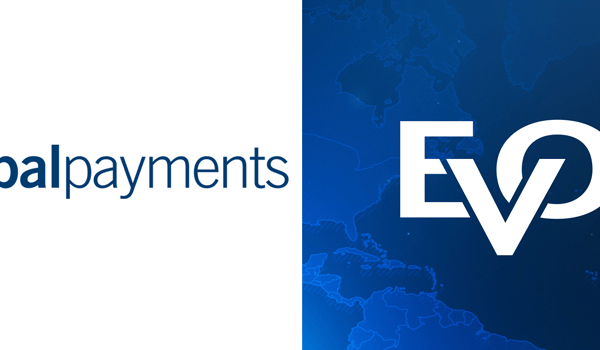
ATLANTA, Feb. 27, 2020 (GLOBE NEWSWIRE) — EVO Payments, Inc. (NASDAQ: EVOP) (“EVO” or the “Company”) today announced its fourth quarter and year-end 2019 financial results. For the fourth quarter ended December 31, 2019, reported revenue was $129.4 million, compared to $150.8 million in the prior year, which reflects the adoption of Accounting Standards Codification Topic 606, Revenue from Contracts with Customers (“ASC 606”), effective January 1, 2019. As required for comparability purposes in the year of adoption, the Company also reports adjusted revenue to exclude network fees. Adjusted revenue for the fourth quarter was $160.0 million, compared to $150.8 million in the prior year, an increase of 6%. On a currency neutral basis, adjusted revenue for the fourth quarter increased 7%. On a GAAP basis for the fourth quarter, the Company recognized a net loss of $3.2 million, or ($0.09) per share, an improvement of 84% compared to the prior year. Adjusted EBITDA increased 8% to $48.1 million for the quarter. On a currency neutral basis, adjusted EBITDA grew 9% over the prior year.
For the twelve months ended December 31, 2019, reported revenue was $485.8 million, compared to $564.8 million in the prior year, which reflects the adoption of ASC 606. Adjusted revenue for the twelve months ended December 31, 2019 was $598.0 million, compared to $564.8 million in the prior year, an increase of 6%. On a currency neutral basis, adjusted revenue for the twelve months ended December 31, 2019 increased 8%. On a GAAP basis for the twelve months ended December 31, 2019, the Company recognized a net loss of $23.4 million, or ($0.31) per share, an improvement of 76% compared to the prior year. Adjusted EBITDA increased 8% to $160.3 million for the year. On a currency neutral basis, adjusted EBITDA grew 11% over the prior year.
“We are pleased with our fourth quarter and 2019 financial results,” said James G. Kelly, Chief Executive Officer of EVO. “Our 2019 results reflect the strong diversification and expanding distribution capabilities of our business. During 2019, we were able to increase our distribution and deliver growth via our international bank partnerships and our tech-enabled division across all markets. We augmented our ISV and B2B capabilities in 2019 through acquisitions in Mexico, the U.S., and Europe. We look forward to expanding our B2B, ISV, and international eCommerce businesses in 2020, as we continue to enable digital payments around the globe.”
Outlook
We are providing 2020 guidance that includes the adoption of ASC 606; going forward, we will report revenue on a basis that includes the adoption of ASC 606. We expect 2020 full-year GAAP revenue to range from $516 million to $526 million. On a constant currency basis, we expect revenue growth to be 7% to 9% over 2019 results. Pre-tax income, on a GAAP basis, is expected to range from $17 million to $22 million compared to a pre-tax loss of $19 million in 2019. Adjusted EBITDA is expected to be in the range of $173 million to $179 million, reflecting growth of 10% to 13% over currency-neutral 2019 adjusted EBITDA. The adjusted EBITDA margin is expected to range from 33.5% to 34.0%, reflecting expansion of 80 to 130 basis points over the 2019 currency-neutral adjusted EBITDA margin.
Conference call
EVO’s management will host a conference call for investors at 8:00 a.m. Eastern Time on Thursday, February 27, 2020 to discuss the results. Participants may access the conference call via the investor relations section of the company’s website at www.evopayments.com, or participants may also dial (866) 209-9657 inside the U.S. and Canada and (825) 312-2290 outside the U.S. and Canada to listen. The conference ID number is 8497173. A recording of the call will be archived on the company’s investor relations website following the live call.
Forward-Looking Statements
This release and the accompanying earnings conference call contain statements about future events and expectations that constitute forward-looking statements. Forward-looking statements are often identified by words such as “anticipates,” “believes,” “continues,” “estimates,” “expects,” “goal,” “objectives,” “intends,” “may,” “opportunity,” “plans,” “potential,” “near-term,” “long-term,” “projections,” “assumptions,” “projects,” “guidance,” “forecasts,” “outlook,” “target,” “trends,” “should,” “could,” “would,” “will” and similar expressions. We intend such forward-looking statements to be covered by the safe harbor provisions for forward-looking statements contained in Section 27A of the Securities Act of 1933 and Section 21E of the Securities Exchange Act of 1934. Forward-looking statements are based on our current beliefs, assumptions, estimates, and expectations, taking into account the information currently available to us, and are not guarantees of future results or performance. Forward-looking statements are not statements of historical fact. Forward-looking statements involve risks and uncertainties that may cause our actual results to differ materially from the expectations of future results we express or imply in any forward-looking statements, and you should not place undue reliance on such statements. Factors that could contribute to these differences include the following: (1) our ability to anticipate and respond to changing industry trends and the needs and preferences of our customers and consumers; (2) the impact of substantial and increasingly intense competition; (3) the impact of changes in the competitive landscape, including disintermediation from other participants in the payments chain; (4) the effects of global economic, political, and other conditions; (5) our compliance with governmental regulations and other legal obligations, particularly related to privacy, data protection, and information security, and consumer protection laws; (6) our ability to protect our systems and data from continually evolving cybersecurity risks or other technological risks; (7) failures in our processing systems, software defects, computer viruses, and development delays; (8) degradation of the quality of the products and services we offer, including support services; (9) risks associated with our ability to successfully complete, integrate and realize the expected benefits of acquisitions; (10) continued consolidation in the banking and payment services industries, including the impact of the combination of Banco Popular and Grupo Santander and the related bank branch consolidation; (11) increased customer, referral partner, or sales partner attrition; (12) the incurrence of chargebacks; (13) failure to maintain or collect reimbursements; (14) fraud by merchants or others; (15) the failure of our third-party vendors to fulfill their obligations; (16) failure to maintain merchant and sales relationships or financial institution alliances; (17) ineffective risk management policies and procedures; (18) our inability to retain smaller-sized merchants and the impact of economic fluctuations on such merchants, (19) damage to our reputation, or the reputation of our partners; (20) seasonality and volatility; (21) our inability to recruit, retain and develop qualified personnel; (22) geopolitical and other risks associated with our operations outside of the United States; (23) any decline in the use of cards as a payment mechanism or other adverse developments with respect to the card industry in general; (24) increases in card network fees; (25) failure to comply with card networks requirements; (26) a requirement to purchase our eService subsidiary in Poland; (27) changes in foreign currency exchange rates; (28) future impairment charges; (29) risks relating to our indebtedness, including our ability to raise additional capital to fund our operations on economized terms or at all and exposure to interest rate risks; (30) changes to, or the potential phasing out of, LIBOR and the transition to other benchmarks; (31) restrictions imposed by our credit facilities and outstanding indebtedness; (32) participation in accelerated funding programs; (33) failure to enforce and protect our intellectual property rights; (34) failure to comply with, or changes in, laws, regulations and enforcement activities, including those relating to corruption, anti-money laundering, data privacy, and financial institutions; (35) impact of new or revised tax regulations; (36) legal proceedings; (37) our dependence on distributions from EVO Investco, LLC to pay our taxes and expenses, including certain payments to the Continuing LLC Owners (as defined in our public filings) and, in the event that any tax benefits are disallowed, our inability to be reimbursed for payments made to the Continuing LLC Owners; (38) our organizational structure, including benefits available to the Continuing LLC Owners that are not available to holders of our Class A common stock to the same extent; (39) the risk that we could be deemed an investment company under the Investment Company Act of 1940, as amended; (40) the significant influence the Continuing LLC Owners continue to have over us, including control over decisions that require the approval of stockholders; (41) certain provisions of Delaware law and antitakeover provisions in our organizational documents could delay or prevent a change of control; (42) certain provisions in our organizational documents, including those that provide Delaware as the exclusive forum for litigation matters and that renounce the doctrine of corporate opportunity; (43) our ability to establish and maintain effective internal control over financial reporting and disclosure controls and procedures; (44) changes in our stock price, including relating to downgrades, analyst reports, and future sales by us or by existing stockholders; and (45) the other risks and uncertainties included from time to time in our filings with the SEC, including those listed under “Risk Factors” contained in Part I of our Annual Report on Form 10-K for the year ended December 31, 2019.
We qualify any forward-looking statements entirely by the cautionary factors listed above, among others. Other risks, uncertainties and factors, not listed above, could also cause our actual results to differ materially from those projected in any forward-looking statements we make. We assume no obligation to update or revise these forward-looking statements for any reason, or to update the reasons actual results could differ materially from those anticipated in these forward-looking statements, even if new information becomes available in the future.
Non-GAAP financial measures
EVO Payments, Inc. has supplemented revenue, segment profit, net income/(loss) and earnings per share information determined in accordance with GAAP by providing these and other measures on an adjusted basis in this release to assist with evaluating performance. The non-GAAP financial measures presented herein should not be considered in isolation of, as a substitute for, or superior to, financial information prepared in accordance with GAAP, and such measures may not be comparable to those reported by other companies. Management uses these adjusted financial performance measures for financial and operational decision making and as a means to evaluate period-to-period comparisons. Management also uses these non-GAAP financial measures, together with other metrics, to set goals for and measure the performance of the business and to determine incentive compensation. The Company believes that these adjusted measures provide useful information to investors about the Company’s ongoing underlying operating performance and enhance the overall understanding of financial performance of the Company’s core business by presenting the Company’s results without giving effect to one or more of the following: equity-based compensation, giving pro forma effect to a normalized effective tax rate for the Company, costs related to transition, acquisition and integration matters. This release also contains information on various financial measures presented on a currency-neutral basis. The Company believes these currency-neutral measures provide useful information to investors about the Company’s performance by excluding fluctuations caused solely by movements in currency exchange rates in the non-U.S. jurisdictions where the Company operates. Reconciliations of each non-GAAP measure to the most directly comparable GAAP measure are included in the schedules to this release.
Adjusted revenue is presented in this release without giving effect to ASC 606, which we adopted effective January 1, 2019. In accordance with GAAP, during the year of adoption, we are required to report this measure as part of our financial statements in order to allow for comparability with prior periods. Following this release, we no longer plan to report adjusted revenue without giving effect to ASC 606. We will, however, continue to report our revenues on a currency-neutral basis for the reasons described above.
Among other non-GAAP financial measures presented, this release contains a presentation of our adjusted EBITDA and pro forma adjusted net income. Neither of these measures purport to be an alternative to cash flows from operating activities as a measure of liquidity, and neither is intended to be a measure of free cash flow available for management’s discretionary use as they do not consider certain cash requirements such as tax payments and, in the case of adjusted EBITDA, interest payments and debt service requirements. Further, adjusted EBITDA does not purport to be an alternative to net income as a measure of operating performance. These measures, or measures similar to them, are also frequently used by analysts, investors and other interested parties to evaluate companies in the industry. Adjusted EBITDA is defined as income before provision for income taxes, net interest expense, and depreciation and amortization, excluding the impact of net income from consolidated subsidiaries (including related depreciation and amortization), share-based compensation, and transition, acquisition and integration costs. Pro forma adjusted net income is defined as GAAP net loss adjusted to exclude income taxes, the impact of net income from consolidated subsidiaries (including related depreciation and amortization), share-based compensation, transition, acquisition and integration costs, and amortization of acquisition intangibles and subsequently adjusted to give pro forma effect to a normalized tax rate for the Company. The calculation of adjusted EBITDA and pro forma adjusted net income have limitations as analytical tools, including: (a) they do not reflect the Company’s cash expenditures, or future requirements for capital expenditures or contractual commitments; (b) they do not reflect changes in, or cash requirements for, the Company’s working capital needs; (c) in the case of adjusted EBITDA, it does not reflect the interest expense or the cash requirements necessary to service interest or principal payments on the Company’s indebtedness; (d) they do not reflect the Company’s tax expense or the cash requirements to pay the Company’s taxes; and (e) although depreciation and amortization are non-cash charges, the assets being depreciated and amortized will often have to be replaced in the future and these measures do not reflect any cash requirements for such replacements.
About EVO Payments, Inc.
EVO Payments, Inc. (NASDAQ: EVOP) is a leading payment technology and services provider. EVO offers an array of innovative, reliable, and secure payment solutions to merchants ranging from small and mid-size enterprises to multinational companies and organizations across North America and Europe. As a fully integrated merchant acquirer and payment processor in over 50 markets and 150 currencies worldwide, EVO provides competitive solutions that promote business growth, increase customer loyalty, and enhance data security in the international markets it serves.
EVO Payments, Inc.
Contact:
Sarah Jane Perry
Investor Relations & Corporate Communications Manager
770-709-7365
investor.relations@evopayments.com
EVO PAYMENTS, INC. AND SUBSIDIARIES
Schedule 1 – Consolidated Statements of Operations (unaudited)
(in thousands, except share and per share data)
| Three Months Ended December 31, | Year Ended December 31, | |||||
| 2019 | 2018 | % change | 2019 | 2018 | % change | |
| Revenue | $129,380 | $150,823 | (14%) | $485,778 | $564,754 | (14%) |
| Operating expenses: | ||||||
| Cost of services and products | 23,465 | 47,549 | (51%) | 96,365 | 189,375 | (49%) |
| Selling, general and administrative | 71,334 | 68,371 | 4% | 267,926 | 311,353 | (14%) |
| Depreciation and amortization | 23,647 | 25,876 | (9%) | 92,059 | 87,184 | 6% |
| Impairment of intangible assets | 2,596 | 14,627 | (82%) | 13,101 | 14,627 | (10%) |
| Total operating expenses | 121,042 | 156,423 | (23%) | 469,451 | 602,539 | (22%) |
| Income (loss) from operations | 8,338 | (5,600) | NM | 16,327 | (37,785) | NM |
| Other (expense) income: | ||||||
| Interest income | 604 | 597 | 1% | 2,872 | 2,219 | 29% |
| Interest expense | (10,006) | (12,306) | (19%) | (44,011) | (59,759) | (26%) |
| Income from investment in unconsolidated investees | 124 | 788 | (84%) | 560 | 1,513 | (63%) |
| Gain on acquisition of unconsolidated investee | – | (255) | NM | – | 8,404 | NM |
| Other income (expense), net | 2,937 | (35) | NM | 5,434 | (2,998) | NM |
| Total other expense | (6,341) | (11,211) | (43%) | (35,145) | (50,621) | (31%) |
| Income (loss) before income taxes | 1,996 | (16,811) | NM | (18,818) | (88,406) | (79%) |
| Income tax expense | (5,166) | (2,470) | 109% | (4,548) | (10,444) | (56%) |
| Net loss | (3,170) | (19,281) | (84%) | (23,366) | (98,850) | (76%) |
| Less: Net income attributable to non-controlling interests in consolidated entities | 3,079 | 2,262 | 36% | 7,877 | 6,696 | 18% |
| Less: Net loss attributable to non-controlling interests of EVO Investco, LLC | (2,815) | (17,506) | (84%) | (21,138) | (90,834) | (77%) |
| Net loss attributable to EVO Payments, Inc. | $ (3,434) | $ (4,037) | (15%) | $ (10,105) | $ (14,712) | (31%) |
| Earnings per share | ||||||
| Basic | ($0.09) | ($0.16) | ($0.31) | ($0.70) | ||
| Diluted | ($0.09) | ($0.16) | ($0.31) | ($0.70) | ||
| Weighted average Class A common stock outstanding | ||||||
| Basic | 37,835,749 | 25,595,780 | 32,720,370 | 21,081,447 | ||
| Diluted | 37,835,749 | 25,595,780 | 32,720,370 | 21,081,447 | ||
EVO PAYMENTS, INC. AND SUBSIDIARIES
Schedule 2 – Consolidated Balance Sheets (unaudited)
(in thousands, except share and interest data)
| December 31, 2019 | December 31, 2018 | |
| Assets | ||
| Current assets: | ||
| Cash and cash equivalents | $304,089 | $350,697 |
| Accounts receivable, net | 15,881 | 13,248 |
| Other receivables | 24,438 | 56,518 |
| Due from related parties | 1,125 | 1,871 |
| Inventory | 9,128 | 8,867 |
| Settlement processing assets | 328,637 | 248,330 |
| Other current assets | 12,867 | 11,817 |
| Total current assets | 696,165 | 691,348 |
| Equipment and improvements, net | 94,464 | 103,046 |
| Goodwill, net | 378,838 | 353,011 |
| Intangible assets, net | 257,560 | 290,139 |
| Investment in unconsolidated investees | 2,078 | 1,753 |
| Due from related parties | – | 915 |
| Deferred tax asset | 210,275 | 72,296 |
| Operating lease right-of-use assets | 45,664 | – |
| Other assets | 21,360 | 21,879 |
| Total assets | $1,706,404 | $1,534,387 |
| Liabilities and Shareholders’ Deficit | ||
| Current liabilities: | ||
| Settlement lines of credit | $33,103 | $41,819 |
| Current portion of long-term debt | 8,744 | 7,191 |
| Accounts payable | 13,584 | 48,935 |
| Accrued expenses | 110,079 | 112,281 |
| Settlement processing obligations | 449,302 | 428,328 |
| Current portion of operating lease liabilities, inclusive of related party liability of $1.2 million at December 31, 2019 | 7,087 | – |
| Due to related parties | 7,325 | 4,824 |
| Total current liabilities | 629,224 | 643,378 |
| Long-term debt, net of current portion | 693,169 | 676,865 |
| Due to related parties | 385 | 385 |
| Deferred tax liability | 17,260 | 13,519 |
| Tax receivable agreement obligations, inclusive of related party liability of $141.1 million and $40.7 million at December 31, 2019 and December 31, 2018, respectively | 150,274 | 47,221 |
| ISO reserves | 2,758 | 2,684 |
| Operating lease liabilities, net of current portion, inclusive of related party liability of $3.2 million at December 31, 2019 | 41,703 | – |
| Other long-term liabilities | 1,830 | 2,924 |
| Total liabilities | 1,536,603 | 1,386,976 |
| Commitments and contingencies | ||
| Redeemable non-controlling interests | 1,052,448 | 1,010,093 |
| Shareholders’ deficit: | ||
| Class A common stock (par value $0.0001), Authorized – 200,000,000 shares, Issued and Outstanding – 41,233,954 and 26,025,189 shares at December 31, 2019 and December 31, 2018, respectively | 4 | 3 |
| Class B common stock (par value $0.0001), Authorized – 40,000,000 shares, Issued and Outstanding – 34,163,538 and 35,913,538 shares at December 31, 2019 and December 31, 2018, respectively | 3 | 4 |
| Class C common stock (par value $0.0001), Authorized – 4,000,000 shares, Issued and Outstanding – 2,321,955 and 2,461,055 shares at December 31, 2019 and December 31, 2018, respectively | – | – |
| Class D common stock (par value $0.0001), Authorized – 32,000,000 shares, Issued and Outstanding – 4,354,978 and 16,785,552 shares at December 31, 2019 and December 31, 2018, respectively | – | 1 |
| Additional paid-in capital | – | 178,176 |
| Accumulated deficit attributable to Class A common stock | (587,358) | (223,799) |
| Accumulated other comprehensive loss | (1,948) | (2,993) |
| Total EVO Payments, Inc. shareholders’ deficit | (589,299) | (48,608) |
| Nonredeemable non-controlling interests | (293,348) | (814,074) |
| Total deficit | (882,647) | (862,682) |
| Total liabilities and deficit | $1,706,404 | $1,534,387 |
EVO PAYMENTS, INC. AND SUBSIDIARIES
Schedule 3 – Consolidated Statements of Cash Flows (unaudited)
(in thousands)
| Year ended December 31, | ||
| 2019 | 2018 | |
| Cash flows from operating activities: | ||
| Net loss | $(23,366) | $(98,850) |
| Adjustments to reconcile net loss to net cash provided by operating activities: | ||
| Depreciation and amortization | 92,059 | 87,184 |
| (Gain) on sale of investment | (250) | – |
| Amortization of deferred financing costs | 2,680 | 8,528 |
| Change in fair value of contingent consideration | 2,384 | (375) |
| Loss on extinguishment of debt | – | 2,055 |
| Loss on disposal of equipment and improvements | 3,014 | 1,311 |
| Share-based compensation expense | 10,921 | 55,519 |
| Impairment of intangible assets | 13,101 | 14,627 |
| Accrued interest expense | 3,492 | (340) |
| Gain on acquisition of unconsolidated investee | – | (8,404) |
| Deferred taxes, net | (9,182) | (1,778) |
| Other | (681) | (595) |
| Changes in operating assets and liabilities, net of effect of acquisitions: | ||
| Accounts receivable, net | (1,719) | 3,141 |
| Other receivables | 27,474 | (1,563) |
| Inventory | (276) | 2,049 |
| Other current assets | (592) | (4,018) |
| Operating lease right of-use-assets | 7,335 | – |
| Other assets | (1,233) | 2,948 |
| Related parties, net | 3,797 | (498) |
| Accounts payable | (35,962) | (12,426) |
| Accrued expenses | 641 | 15,509 |
| Settlement processing funds, net | (59,077) | 137,898 |
| Operating lease liabilities | (6,745) | – |
| Other | 74 | 76 |
| Net cash provided by operating activities | 27,889 | 201,998 |
| Cash flows from investing activities: | ||
| Acquisition of businesses, net of cash acquired | (38,832) | (56,193) |
| Purchase of equipment and improvements | (36,808) | (48,751) |
| Acquisition of intangible assets | (8,013) | (20,704) |
| Net proceeds from sale of investments | 250 | – |
| Issuance of notes receivable | – | (37) |
| Collections of notes receivable | 1,878 | 120 |
| Collection of deferred cash consideration | 4,882 | – |
| Net cash used in investing activities | (76,643) | (125,565) |
| Cash flows from financing activities: | ||
| Proceeds from long-term debt | 583,505 | 774,359 |
| Repayments of long-term debt | (580,795) | (853,487) |
| Deferred financing costs paid | (2) | (3,903) |
| Contingent consideration paid | (6,276) | (2,505) |
| Deferred cash consideration paid | (915) | (65,000) |
| Acquisition of additional non-controlling interest | – | (16,916) |
| IPO proceeds, net of underwriter fees | – | 231,500 |
| Proceeds from the secondary offerings1 | 381,619 | 190,894 |
| Purchase of LLC Interests, Class B common stock, and Class D common stock in connection with secondary offerings1 | (362,635) | (165,927) |
| Repurchases of shares to satisfy minimum tax withholding | (1,819) | (795) |
| Proceeds from exercise of common stock options | 1,010 | – |
| Distribution to non-controlling interests holders | (9,772) | (7,577) |
| Net cash provided by financing activities | 3,920 | 80,643 |
| Effect of exchange rate changes on cash and cash equivalents | (1,774) | (11,521) |
| Net (decrease) increase in cash and cash equivalents | (46,608) | 145,555 |
| Cash and cash equivalents, beginning of period | 350,697 | 205,142 |
| Cash and cash equivalents, end of period | $304,089 | $350,697 |
1 For the year ended December 31, 2019, Proceeds from the secondary offerings and Purchase of LLC Interests, Class B common stock, and Class D common stock in connection with the secondary offerings refers to the sale of Class A common stock and the purchase of an equivalent number of LLC interests and shares of Class D and Class B common stock in connection with the April 2019 Secondary Offering, the August 2019 Secondary Offering, and the December 2019 Secondary Offering. For the year ended December 31, 2018, Proceeds from the secondary offerings and Purchase of LLC Interests, Class B common stock, and Class D common stock in connection with the secondary offerings refers to the sale of Class A common stock and the purchase of an equivalent number of LLC interests and shares of Class D common stock in connection with the September 2018 Secondary Offering.
EVO PAYMENTS, INC. AND SUBSIDIARIES
Schedule 4 – Reconciliation of GAAP to Non-GAAP measures
(in thousands)
| Three Months Ended December 31, | Year Ended December 31, | |||||
| 2019 | 2018 | % change | 2019 | 2018 | % change | |
| Revenue | $129,380 | $150,823 | (14%) | $485,778 | $564,754 | (14%) |
| Network fees1 | 30,650 | – | NM | 112,258 | – | NM |
| Adjusted revenue | 160,030 | 150,823 | 6% | 598,036 | 564,754 | 6% |
| Currency impact2 | – | (801) | NM | – | (13,450) | NM |
| Currency-neutral adjusted revenue | 160,030 | 150,022 | 7% | 598,036 | 551,304 | 8% |
| Net loss | (3,170) | (19,281) | (84%) | (23,366) | (98,850) | (76%) |
| Net income attributable to non-controlling interests in consolidated entities | (3,079) | (2,262) | 36% | (7,877) | (6,696) | 18% |
| Income tax expense | 5,166 | 2,470 | 109% | 4,548 | 10,444 | (56%) |
| Interest expense, net | 9,402 | 11,709 | (20%) | 41,139 | 57,540 | (29%) |
| Depreciation and amortization | 23,647 | 25,876 | (9%) | 92,059 | 87,184 | 6% |
| Share-based compensation3 | 3,080 | 1,596 | 93% | 10,921 | 54,880 | (80%) |
| Transition, acquisition and integration costs4 | 13,022 | 24,237 | (46%) | 42,825 | 43,901 | (2%) |
| Adjusted EBITDA | 48,069 | 44,345 | 8% | 160,250 | 148,401 | 8% |
| Currency impact2 | – | (61) | NM | – | (3,444) | NM |
| Currency-neutral adjusted EBITDA | $48,069 | $44,283 | 9% | $160,250 | $144,957 | 11% |
1 Effective January 1, 2019, EVO adopted Accounting Standards Topic 606, Revenue from Contracts with Customers, where certain amounts that we pay to third parties, including payment network fees are now netted against revenue.
The adjustment reflected here is for comparability to the prior year as these expenses were reflected in operating expenses in 2018. There is no net effect on net loss or adjusted EBITDA.
2 Represents the impact of currency shifts by adjusting prior year results to current period average fx rates for the currencies in which EVO conducts operations.
3 Represents share-based compensation expense. For the year ended December 31, 2018, the share-based compensation costs include a payroll tax charge related to share compensation.
For the year ended December 31, 2018, the share-based compensation costs include vesting of awards at the time of the IPO.
4 For the three months ended December 31, 2019, earnings adjustments include $2.4 million of employee termination benefits, $8.0 million of acquisition and integration related costs, and a $2.6 million impairment charge related to the write-down of a trademark.
For the three months ended December 31, 2018, earnings adjustments include $0.9 million of employee termination benefits and $8.7 million of acquisition and integration related costs, and a $14.6 million impairment of intangible assets.
For the year ended December 31, 2019, earnings adjustments include $5.1 million of employee termination benefits, $26.1 million of acquisition and integration related costs, and $11.6 million of impairment charges, net of non-controlling interest.
For the year ended December 31, 2018, earnings adjustments include $7.3 million of employee termination benefits, $4.0 million strategic advisory fee, $26.4 million of acquisition and integration related costs, the adjustment of the $8.4 million gain related to the fair value mark-up on the acquisition of a previously minority owned subsidiary, and a $14.6 million impairment of intangible assets.
EVO PAYMENTS, INC. AND SUBSIDIARIES
Schedule 5 – Segment Information (unaudited)
(dollar amount in thousands, transactions in millions)
| Three months ended December 31, | ||||||||
| 2019 | Adjustments1 | 2019 Adjusted | 2018 | Adjustments2 | Fx impact3 | 2018 Adjusted | Adjusted % change | |
| Transactions | ||||||||
| Americas | 289.6 | 246.5 | 17% | |||||
| Europe | 683.4 | 575.1 | 19% | |||||
| Total | 973.0 | 821.6 | 18% | |||||
| Segment revenue | ||||||||
| Americas | $81,197 | $9,971 | $91,168 | $87,795 | $- | $912 | $88,707 | 3% |
| Europe | 48,183 | 20,679 | 68,862 | 63,029 | – | (1,713) | 61,315 | 12% |
| Total | 129,380 | 30,650 | 160,030 | 150,823 | – | (801) | 150,022 | 7% |
| Segment profit | ||||||||
| Americas | 30,969 | 6,342 | 37,311 | 11,762 | 19,701 | 490 | 31,953 | 17% |
| Europe | 13,462 | 3,622 | 17,084 | 18,538 | 1,610 | (551) | 19,596 | (13%) |
| Corporate | (9,384) | 3,058 | (6,326) | (9,551) | 2,285 | – | (7,267) | (13%) |
| Total | $35,047 | $13,022 | $48,069 | $20,749 | $23,595 | $(61) | $44,283 | 9% |
| Segment profit margin – Americas | 38.1% | 40.9% | 13.4% | 36.0% | ||||
| Segment profit margin – Europe | 27.9% | 24.8% | 29.4% | 32.0% | ||||
| Segment profit margin – Total | 27.1% | 30.0% | 13.8% | 29.5% | ||||
1 Effective January 1, 2019, EVO adopted Accounting Standards Topic 606, Revenue from Contracts with Customers, where certain amounts that we pay to third parties, including payment network fees are now netted against revenue.
The adjustment reflected here is for comparability to the prior year as these expenses were reflected in operating expenses in 2018. There is no net effect on net loss or segment profit.
For the three months ended December 31, 2019, the Americas segment profit adjustments include $2.4 million of employee termination benefits, and $3.9 million of acquisition and integration costs.
The Europe segment profit adjustments include $1.0 million of acquisition and integration costs and a $2.6 million impairment due to the write-down of a tradename.
Corporate adjustments include $3.1 million of acquisition and integration related costs.
2 For the three months ended December 31, 2018, the Americas segment profit adjustments include $0.2 million of employee termination benefits, $4.9 million of transaction and acquisition costs and a $14.6 million impairment of intangible assets.
The Europe segment profit adjustments include $0.7 million of employee termination benefits and $0.9 million of acquisition and integration costs.
The Corporate segment profit adjustments include $2.3 million of transaction and acquisition related costs.
3 Represents the impact of currency shifts by adjusting prior year results to current period average fx rates for the currencies in which EVO conducts operations.
Segment profit excludes share-based compensation and therefore is not included in the Adjustments totals.
Segment profit margin is defined as segment profit divided by segment revenue.
| Year ended December 31, | ||||||||
| 2019 | Adjustments1 | 2019 Adjusted | 2018 | Adjustments2 | Fx impact3 | 2018 Adjusted | Adjusted % change | |
| Transactions | ||||||||
| Americas | 1,073.7 | 955.1 | 12% | |||||
| Europe | 2,543.9 | 2,140.9 | 19% | |||||
| Total | 3,617.6 | 3,096.1 | 17% | |||||
| Segment revenue | ||||||||
| Americas | $303,840 | $36,924 | $340,764 | $320,481 | $- | $(104) | $320,377 | 6% |
| Europe | 181,938 | 75,334 | 257,272 | 244,273 | – | (13,346) | 230,927 | 11% |
| Total | 485,778 | 112,258 | 598,036 | 564,754 | – | (13,450) | 551,304 | 8% |
| Segment profit | ||||||||
| Americas | 96,587 | 21,824 | 118,411 | 85,377 | 19,626 | 7 | 105,009 | 13% |
| Europe | 55,319 | 10,933 | 66,251 | 61,195 | 4,711 | (3,451) | 62,454 | 6% |
| Corporate | (34,481) | 10,069 | (24,413) | (41,431) | 18,925 | – | (22,506) | 8% |
| Total | $117,425 | $42,825 | $160,250 | $105,140 | $43,262 | $(3,444) | $144,957 | 11% |
| Segment profit margin – Americas | 31.8% | 34.7% | 26.6% | 32.8% | ||||
| Segment profit margin – Europe | 30.4% | 25.8% | 25.1% | 27.0% | ||||
| Segment profit margin – Total | 24.2% | 26.8% | 18.6% | 26.3% | ||||
1 Effective January 1, 2019, EVO adopted Accounting Standards Topic 606, Revenue from Contracts with Customers, where certain amounts that we pay to third parties, including payment network fees are now netted against revenue.
The adjustment reflected here is for comparability to prior year as these expenses were reflected in operating expenses in 2018. There is no net effect on net loss or segment profit.
For the year ended December 31, 2019, the Americas segment profit adjustments include $4.8 million for employee termination benefits, $11.0 million of acquisition and integration costs, and $6.0 million of impairment charges.
The Europe segment profit adjustments include $0.1 million of employee termination benefits, $5.2 million of acquisition and integration costs, and $5.6 million in an impairment charge from a joint venture agreement net of non-controlling interest.
Corporate adjustments include $0.2 million of employee termination benefits and $9.9 million of acquisition and integration related costs.
2 For the year ended December 31, 2018, the Americas segment profit adjustments include $4.0 million for employee termination benefits, $9.4 million of acquisition and integration costs, an adjustment for the $8.4 million gain on fair value markup on the acquisition of a previously minority owned subsidiary, and a $14.6 million impairment of intangible assets.
The Europe segment profit adjustments include $3.1 million of employee termination benefits and $1.6 million of acquisition and integration costs.
Corporate adjustments include $18.9 million of acquisition and integration related costs.
3 Represents the impact of currency shifts by adjusting prior year results to current period average fx rates for the currencies in which EVO conducts operations.
Segment profit excludes share-based compensation and therefore is not included in the Adjustments totals.
Segment profit margin is defined as segment profit divided by segment revenue.
EVO PAYMENTS, INC. AND SUBSIDIARIES
Schedule 6 – Pro Forma Adjusted Net Income (unaudited)
(in thousands, except share and per share data)
| Three Months Ended December 31, | Year Ended December 31, | |||||
| 2019 | 2018 | % change | 2019 | 2018 | % change | |
| Net loss | $(3,170) | $(19,281) | (84%) | $(23,366) | $(98,850) | (76%) |
| Net income attributable to non-controlling interests in consolidated entities | (3,079) | (2,262) | 36% | (7,877) | (6,696) | 18% |
| Income tax expense | 5,166 | 2,470 | 109% | 4,548 | 10,444 | (56%) |
| Share-based compensation1 | 3,080 | 1,596 | 93% | 10,921 | 54,880 | (80%) |
| Transition, acquisition and integration costs2 | 13,022 | 24,237 | (46%) | 42,825 | 51,149 | (16%) |
| Acquisition intangible amortization3 | 11,727 | 12,361 | (5%) | 46,813 | 44,574 | 5% |
| Non-GAAP adjusted income before taxes | 26,747 | 19,121 | 40% | 73,864 | 55,499 | 33% |
| Income taxes at pro forma tax rate4 | (6,178) | (4,461) | 39% | (17,062) | (12,948) | 32% |
| Pro forma adjusted net income | $20,568 | $14,660 | 40% | $56,801 | $42,551 | 33% |
| Pro forma adjusted net income per share5 | $0.24 | $0.18 | 33% | $0.66 | $0.52 | 26% |
1 Represents share-based compensation expense in each period. The 2018 periods includes a payroll tax charge related to share compensation.
2 For the three months ended December 31, 2019, earnings adjustments include $2.4 million of employee termination benefits, $8.0 million of acquisition and integration related costs, and a $2.6 million impairment charge related to the write-down of a trademark.
For the three months ended December 31, 2018, earnings adjustments include $0.9 million of employee termination benefits, $8.7 million of transaction and acquisition related costs and a $14.6 million impairment of intangible assets.
For the year ended December 31, 2019, earnings adjustments include $5.1 million of employee termination benefits, $26.1 million of acquisition and integration related costs, and $11.6 million of impairment charges, net of non-controlling interest.
For the year ended December 31, 2018, earnings adjustments include $7.3 million of employee termination benefits, a $4.0 million strategic advisory fee, $24.4 million of transaction and integration costs, $9.2 million of debt extinguishment and modification costs, the adjustment of the $8.4 million gain related to the fair value mark-up on the acquisition of a previously minority owned subsidiary, and a $14.6 million impairment of intangible assets.
3 Represents amortization of intangible assets acquired through business combinations and other merchant portfolio and related asset acquisitions.
4 Pro forma corporate income tax expense calculated using 23.1% and 23.3% for 2019 and 2018, respectively, based on blended federal and state tax rates and utilizing the Tax Reform Act for 2018 federal rates.
5 Uses 86.3 million shares including shares issuable upon exercise of the exchange of LLC Interests, Class B shares, Class C shares, and Class D shares, as well as Class A shares issuable for RSU’s and options.
EVO PAYMENTS, INC. AND SUBSIDIARIES
Schedule 7 – Outlook summary (unaudited)
(in millions, except per share data)
| 2020 Outlook | 2019 Actual | Reported % Change |
Constant fx % Change |
|
| Revenue | $516 to $526 | $486 | 6% – 8% | 7% – 9% |
| GAAP Net loss attributable to EVO | ($5) to ($3) | ($10) | ||
| Adjustments1 | 178 to 182 | 170 | ||
| Adjusted EBITDA | $173 to $179 | $160 | 8% – 11% | 10% – 13% |
| Adjusted EBITDA margin2 | 33.5% to 34.0% | 32.9% | 60 bps to 110 bps | 80 bps to 130 bps |
| GAAP Net loss per share attributable to EVO | ($0.11) to ($0.09) | ($0.31) | ||
| Adjustments3 | 0.82 to 0.83 | 0.97 | ||
| Pro forma adjusted net income per share | $0.71 to $0.74 | $0.66 | 8% – 12% | N/A |
1 Represents an estimated range of adjustments to reconcile GAAP net loss attributable to EVO Payments, Inc. to adjusted EBITDA.
These adjustments include a) net loss attributable to non-controlling interests, b) income tax expense, c) net interest expense, d) depreciation and amortization, e) share-based compensation, and f) costs related to transition, acquisition or integration activities.
2 For 2020 and comparison to 2019, adjusted EBITDA margin is based on reported revenue.
3 Represents an estimated range of adjustments to reconcile net loss per share to pro forma adjusted net income per share.
These adjustments include a) net loss attributable to non-controlling interests, b) income tax expense, c) share-based compensation, d) costs related to transition, acquisition or integration activities, e) amortization of intangible assets acquired in business combinations, and other customer portfolio and related asset acquisitions, and f) adjustments to income to reflect an effective pro forma corporate tax rate of 22.6%. GAAP net loss per share uses Class A share counts.
Pro forma adjusted net income per share uses 87.1 million of shares outstanding including shares issuable upon exercise of the exchange of LLC Interests, Class B shares, Class C shares, and Class D shares, as well as Class A shares and dilutive securities (i.e. RSUs, RSAs, and options).
Source: EVO Payments, Inc.





